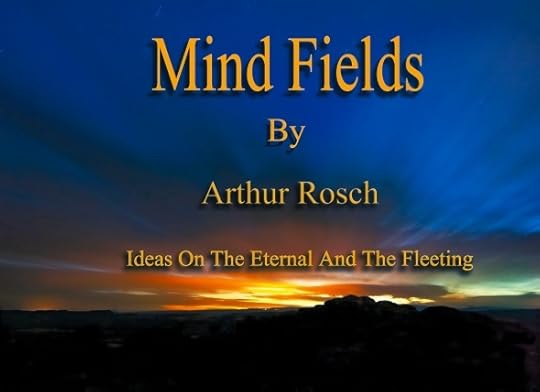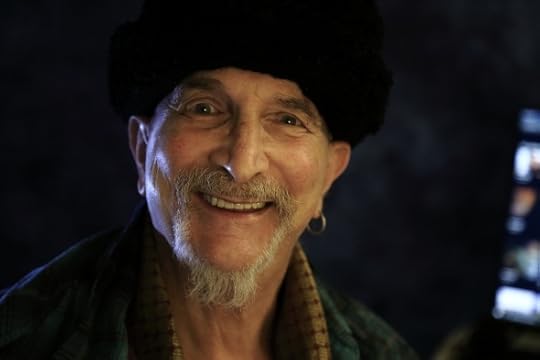Mind Fields: What Is A Jazz Musician?

What makes a jazz musician?
The first word that comes to mind is Commitment.
Jazz is a high-order musical language that has developed by incorporating various other musical languages. Blues and classical techniques are fused in an ongoing exploration of sonic vocabularies. It is a complex, demanding musical discipline that requires time and effort. Jazz began as an American language because it arose from the experience of black Americans in the formation of our culture. Having survived slavery and all the rest of it, the African Americans developed identities unique in the world. These musicians have their roots in southern blues, gospel and church music. When combined with virtuoso classical techniques, The music that emerges is emotional, loose, given to hyperbole both dark and funny. The Blues is like the bottom layer of a pyramid: everything else is built on top of this idiom. Jazz maintains the cries of both pleasure and suffering that arrived on the guitar strings of early blues musicians. The singing voice has some gravel in it: slightly hoarse and redolent of something more ancient, something like voodoo magic. In jazz it is the Mysterious that beckons so powerfully. It is a musical world of spells and trances, of going ever farther “out” but never straying from its roots.
Jazz has spread across the world. Go anywhere: go to Japan. you’ll find jazz. Go to Europe, go to Thailand, go to California. Jazz is everywhere you go.
To go back to the original question: what is a jazz musician? It is a musician dedicated to long hours of practice and study. Jazz is difficult to master. It requires intellectual exertion and physical strength. At the heart of all this mighty effort is the thing that keeps jazz active: love. Ask anyone involved in jazz music and you’ll find this passionate heart beating with every breath. We love jazz as passionately as we love anything at all. We are a lot like priests of a universal religion.
I was just a child when I was first embraced by jazz. I was twelve and playing trumpet when I acquired two LPs. I had The Birth Of The Cool, by Miles Davis, and Art Blakey’s Jazz Messengers. Blakey’s drums are signature: chotta chotta boom boom, and the oceanic wash of his color cymbal as he holds the time in his limbs. What a band! Wayne Shorter, Lee Morgan, Jimmie Meritt, Wynton Kelly. Wow!
A musician who is devoted to jazz can expect a hard road. Jazz becomes commercially viable by way of dilution. The less “real” jazz is in it, the more money it makes. This requires wrenching choices in the lives of musicians.
Not everyone is Stan Getz. He got lucky and…he was white. He landed a hit tune, a bossa nova, and he made a ton of money. But Getz was a very fine jazz player. Getz played his jazz at all of his gigs, pausing only to render his hit Brazilian tune for the audience. One could say that “he sold out but gave all his profits to jazz.” No harm for Stan Getz: only respect.
The only thing easy about jazz is the word “play”. That’s what jazz is. A game to be played, a musical puzzle that needs resolution, figuring out how it works, why it works and when it works. Ask any jazz player how much fun it is to play with one’s peers. It is FUN! Nothing beats playing with others whose abilities are matched to one’s own. Or better, yet, playing with more advanced musicians in order to learn from mentors. Jazz is love, fun, blues, bossa, soulful, adventurous, mystical and profound.
About Arthur RoschArthur Rosch is a novelist, musician, photographer and poet. His works are funny, memorable and often compelling. One reviewer said “He’s wicked and feisty, but when he gets you by the guts, he never lets go.” Listeners to his music have compared him to Frank Zappa, Tom Waits, Randy Newman or Mose Allison. These comparisons are flattering but deceptive. Rosch is a stylist, a complete original. His material ranges from sly wit to gripping political commentary.

Arthur was born in the heart of Illinois and grew up in the western suburbs of St. Louis. In his teens he discovered his creative potential while hoping to please a girl. Though she left the scene, Arthur’s creativity stayed behind. In his early twenties he moved to San Francisco and took part in the thriving arts scene. His first literary sale was to Playboy Magazine. The piece went on to receive Playboy’s “Best Story of the Year” award.
Arthur also has writing credits in Exquisite Corpse, Shutterbug, eDigital, and Cat Fancy Magazine. He has written five novels, a memoir and a large collection of poetry. His autobiographical novel, Confessions Of An Honest Man won the Honorable Mention award from Writer’s Digest in 2016.
___________________________________
Did you know you can sponsor your favorite blog series or even a single post with an advertisement for your book? Stop by the WtbR Sponsor Page and let me advertise your book, or you can make a donation to Writing to be Read for as little as a cup of coffee, If you’d like to show your support for this author and WordCrafter Press.
________________________________
This segment of “Mind Fields” is sponsored by the Roberta Writes blog site, where you can find the poetry, photos, videos, and book reviews by Robbie Cheadle and so much more.
Writing to be Read
- Kaye Lynne Booth's profile
- 37 followers



